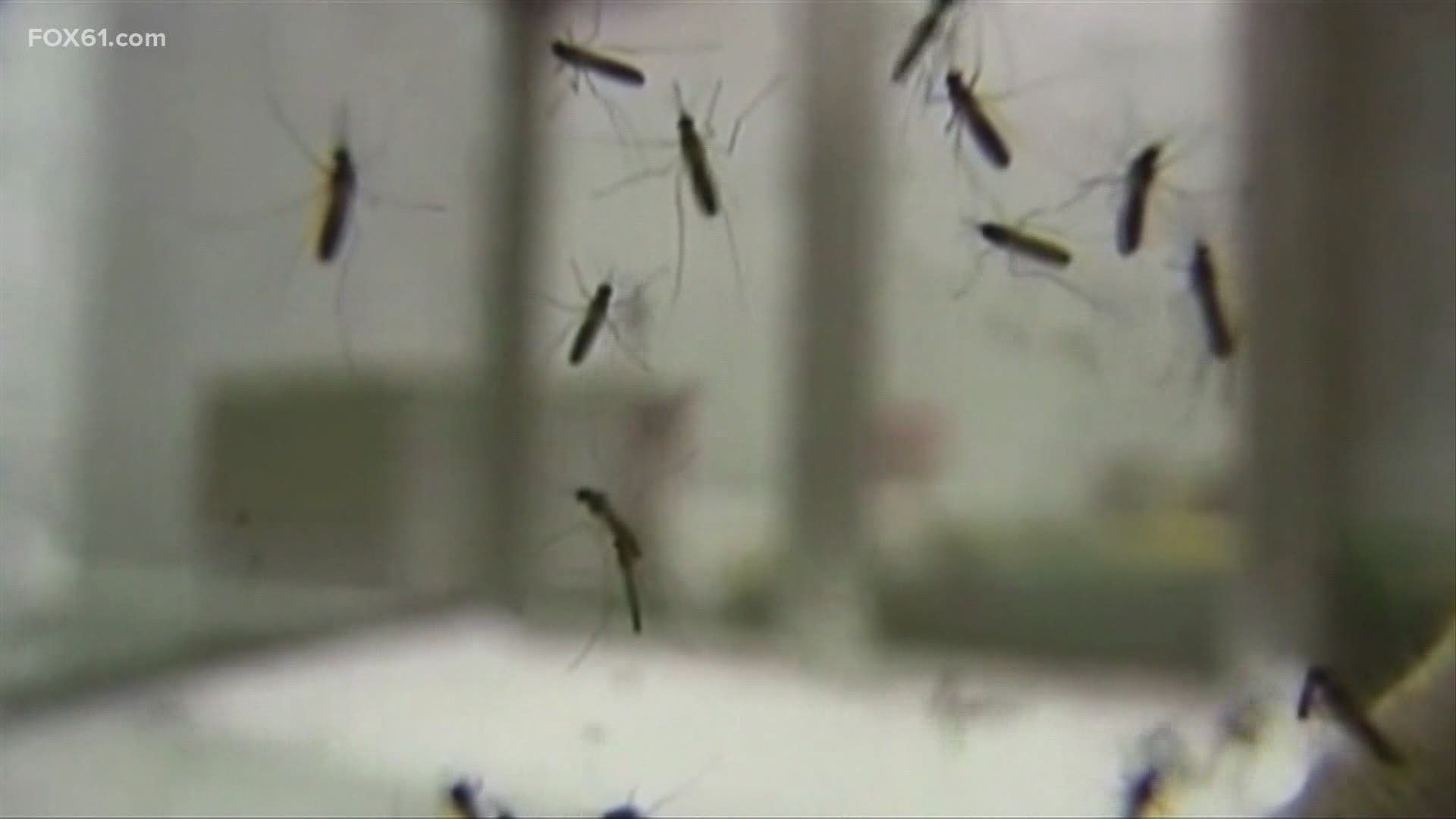NEW HAVEN, Conn. — With COVID dominating the public health conversation, it’s important not to lose sight of the other public health concerns that will linger into the fall. Mosquitos and ticks. On Wednesday, the state Department of Public Health announced three more people tested positive for West Nile in Fairfield County. The Connecticut Agricultural Experiment Station also announced a new disease ridden tick species was just discovered.
We've been told to get outside. The risk of getting COVID drops when you go outside but the risk of getting West Nile or EEE increases. And with fall sports about to get underway, there’s going to be a lot of kids on sports fields at around dawn and dusk. That is primetime for mosquito feeding. Sohrab Hossain is visting Connecticut from New York. He said, "When you see the news every day it’s all about the vaccine. What going on so mosquitos and ticks it’s not a cause for concern for us. I think if more awareness was brought then people would be more concerned about it."
Three Fairfield County residents have tested positive for the West Nile Virus. Philip Armstrong at the Connecticut Agricultural Experiment Station said, "This year is shaping up to be a high risk year for West Nile Virus." The new cases are from Danbury, Newtown and Greenwich. So far this year, there have been four human cases of West Nile with mosquitos testing positive across 14 communities. "Continuing to detect the virus in mosquitos primarily in Fairfield County, New Haven County and the Hartford area," said Armstrong.
And it’s not just West Nile. Eastern Equine Encephalitis is also circulating. There are currently no human cases of EEE in Connecticut, but the disease was identified in mosquitos in Stonington.
And from mosquitos to ticks. It's another serious public health concern. Gulf Coast ticks are a species native to South America. They have never been found in the Northeast region before but they were just discovered in Connecticut. Goudarsz Molaei is a tick scientist at the Agricultural Experiment Station. He said we are seeing, "Extraordinary cases of ticks invading Connecticut."
Climate change is contributing to the migration of these ticks. Once they begin a habitat, they are hard to get rid of. The Gulf Coast tick can cause a fever in humans and illness for dogs. "Once dogs get this disease into their body they will remain infected for the rest of their lives," said Molaei.
Luckily, common sense measures can help protect you from both ticks and mosquitos. When you go outside, wear clothing that covers your body and use an insect repellent with DEET. For mosquitos, eliminate standing water. And for ticks, avoid long grasses and thick vegetation. Mala Hossain said, "Sometimes we wear 'OFF' the off spray. For me personally I’m always dressed in long sleeve so for me it’s not an issue."
Whether it’s West Nile, EEE, Lyme or a host of other insect illnesses, most of them can cause symptoms like fever similar to COVID. Mosquito season will last into October while ticks can last a little longer and typically die off in November.

